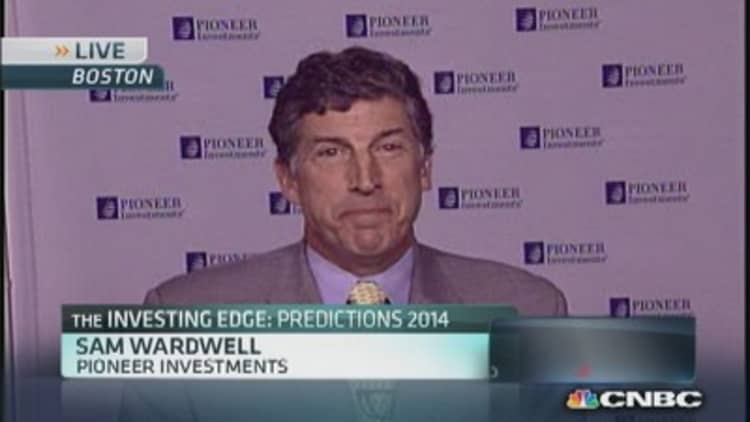Global economies struggling to kick-start their economies may be lacking one simple ingredient: demand.
"So many people – politicians, journalists, I'm afraid market analysts – sort of believe this story of an economics recovery going on around the world," Roger Nightingale, strategist at RDN Associates, told CNBC. "This economics recovery hasn't occurred. In fact, actually for the past 18 months people have been talking about it, the data is pretty flat. If anything, it's getting flatter."
(Read more: 'Anxious' consumers are a drag on growth: IP chief)

"On the American front and indeed in many parts of the world, the picture you're getting is that sales figures are slightly disappointing and earning figures also slightly disappointing," he said.
Other analysts offer an explanation:
"The main obstacle to stronger economic growth is lack of sufficient demand," said Patrick Chovanec, chief strategist at Silvercrest Asset Management, which advises on $14.6 billion in client funds.
(Read more: Jack Lew to press Germany to boost domestic demand)
"The conventional response, among economists, is that the government must take action to boost domestic demand in the United States, with either monetary or fiscal stimulus, or by redistributing wealth," he said in a note, citing the one-time status of the U.S. as the world's "consumer of last resort."
But the U.S. doesn't appear to be able to boost global demand much, Chovanec said. The U.S. Federal Reserve's massive bond-buying program may have prevented a credit collapse during the financial crisis, he said, but it hasn't done much to boost consumer spending.
"The American consumer isn't going to re-leverage and drive global demand, and the government is in no position to replace him," he said.
(Read more: Retailers must end consumer addiction to discounts)
HSBC sees a similar issue in Asia. Investment in emerging Asia has grown faster than demand for products, the bank said in a note. "Despite soaring wages, consumption isn't strong enough to absorb all that's being churned out by Asian factories."
While the region's high household savings rates are often blamed for the lackluster spending, a lower rate may not be enough to raise consumption's share of gross domestic product (GDP), HSBC said, adding it believes the true culprit is wages.
"The share of labor in total national income – accelerating wage growth notwithstanding – is still too low, and often continues to fall. This means that wage growth isn't even keeping up with the expansion of nominal GDP," HSBC said.
(Read more: US consumers a hard sell for traditional retail)
"For consumption to absorb a greater share of output, the share of labor in national income will need to rise, which requires wages to grow faster than nominal GDP. That, in turn, hurts profits;
unless, of course, productivity rises," it said, predicting a "hard slog" ahead for Asia.
Silvercrest's Chovanec also points to stagnant wages as a factor damping demand in the U.S., but he believes it is making the country more competitive.
"Long-standing trends are starting to reverse: the U.S. is seeing an increase in manufacturing jobs (partly due to reshoring) and significant improvement to its trade balance," he said. "Domestic demand will grow, but mainly on the back of a production story driven by global rebalancing."
—By CNBC.Com's Leslie Shaffer; Follow her on Twitter @LeslieShaffer1

